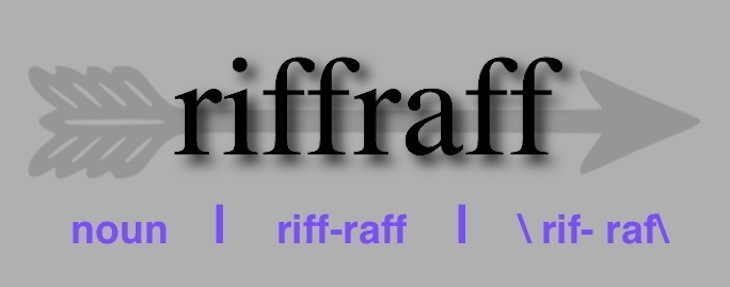Riff Raff: The company you keep …
by March 18, 2019 12:26 pm 1,620 views

One might credit the crushing defeat of a sales tax funding the U.S. Marshals Museum to an impressive grassroots opposition. Also easy would be claiming a broad anti-tax sentiment for the votes against the tax. Those claims are partially correct. And partially wrong.
On March 12, 64.7% of Fort Smith voters rejected a one-cent, nine-month sales tax that would have raised an estimated $16 million for completion of the museum. Almost 6.5 out of 10 voters – 22% of registered voters – said no to a short-term tax that may have cost on average each Fort Smith household $227 for the life of the nine-month tax.
There is not one cause of the almost 30% margin between yes and no votes. Such a political spanking has many parents. Let’s consider a few leading factors for the tax defeat, and in doing so maybe learn a few things about the politics of all things local.
• The anti-tax thing
Fort Smith metro politics are, broadly, conservative, and include an element of being against tax or fee increases no matter the necessity, estimated benefit, or other reasons. However, Fort Smith voters have historically proven supportive of tax increases in which uses are well-defined or where history has shown effective use. The 1% Fort Smith street tax has been renewed many times by wide voter margins. Voters recently approved a more than $120 million millage package for the Fort Smith Public School District. In that early 2018 election, 62% of voters — around 78% were self-identified Republicans — approved the 5.558 millage boost. In 2014, almost 80% – yes, almost 80% – of Crawford County voters renewed a 1% countywide sales tax.
• Seek input first
If you open up early and honest with Fort Smith metro voters, they’ll almost always agree to open their wallets. A local government or organization can’t just show up with a take-it-or-leave-it deal. Fort Smith Public School District officials for many months held community meetings, formed a large citizens committee and took other actions to get citizens engaged in the education process. It was AFTER that process that they rolled out a millage plan. That’s a big reason the $120 million tax package received approval from 62% of voters.
In the late 1990s, Fort Smith voters approved a more than $55 million tax package to build the convention center, build out the library system, and develop the riverfront. But that successful vote followed many months of public hearings and other community meetings in which citizen input helped develop a plan.
No citizen input was either sought or considered prior to the U.S. Marshals Museum tax plan being placed on a special election ballot.
• The company you keep
The museum vote was tied to the city via the need for a Public Facilities Board to own the museum property. The city of Fort Smith has proven in recent years to be a less than reliable, transparent, and honest entity capable of servant leadership. There is no glee in expressing that reality. And that reality is known to Mayor George McGill, the city’s first African-American mayor and who was elected on a platform of improving the city’s reputation.
“Many people, as I move about Fort Smith, are fed up with the current state of affairs, and quite frankly, so am I. People of Fort Smith demand change, and so do I,” the mayor said during a March 12 Fort Smith City Board meeting.
He continued: “The damage has been done to the reputation of our city due to oversight and mismanagement and adversity that is uncountable. We possess many of the building blocks necessary for the growth of a new and exciting business, but … customer service instills no confidence whatsoever from site selectors and economic development professionals. We must begin the hard work necessary to repair our reputation.”
Riff Raff has previously cited the many instances of “oversight and mismanagement and adversity” by the city. You can read those here, here and here. Unfortunately, the tone-deaf political and administrative moves have continued under City Administrator Carl Geffken.
An anti-tax mood, the hamfisted way the museum tax was delivered to voters, and the required partnership between the museum and city are in large part what doomed the vote from the get-go. One could argue the tax would have been defeated without the aggressive grassroots opposition that did emerge.
In May 2016, I noted: “If the city doesn’t soon get its act together in broad terms of trust, transparency and judgment, it may be difficult for (then incoming) Geffken – or anyone else – to convince those wanting to build on the recent momentum that the city can be a reliable, responsive and responsible change-agent partner.”
Let’s hope Mayor McGill, who holds a largely ceremonial position, and business and civic leaders who support his cause possess the passion, persuasion, and political clout to demand and engender meaningful change. This region indeed has the “building blocks necessary” for socio-economic growth, but the city often inexplicably blocks the building of trust necessary for the internal and external relationships that deliver consistent and progressive outcomes for people in the city and region.
